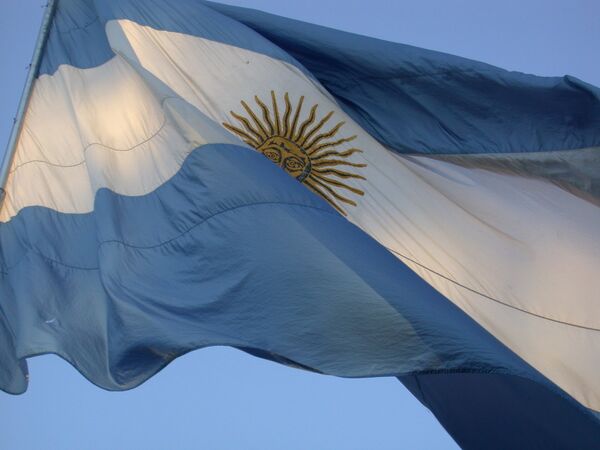MOSCOW, September 16 (RIA Novosti) -Russia is counting on increasing its bilateral trade with Argentina to $2.5 billion - $3 billion in 2015, the head of Russian agricultural watchdog Rosselkhoznadzor, Sergei Dankvert, said Tuesday.
"In 2013, trade turnover between our two countries amounted to about $1.9 billion and traditionally it remains at this level. We hope that in the future this figure will grow to $2.5 billion - $3 billion in 2015," Dankvert said following a meeting of the Russian-Argentinian intergovernmental commission.
According to Dankvert, bilateral trade will increase with enhancing trade connectivity, especially in the energy sector, food trade and construction.
As he was talking about the shipments of agricultural products from Argentina, Dankvert noted that he is counting on imports to increase to up to $500 million.
"We orientate our colleagues toward increasing the supply of dairy products and cheese – the market needs them. And also towards all types of products, traditional for the European Union. For example, we [in Russia] have the same sweets Argentina has – condensed milk is liked in both countries," Dankvert said, adding that Russia counts on increasing shipments of Argentinian butter, seafood and fish.
For his part, Argentinean Deputy Foreign Minister Carlos Bianco said that the cooperation between the two countries touches upon a great number of projects. "For example, "Silovye Mashiny" will be shipping turbines to Argentina, "Rosatom" will be constructing a gigantic nuclear power plant," Bianco said, adding that Argentina is Russia's traditional supplier of agricultural products, including apples, pears, dairy products and beef. "Regardless of the sanctions, our relations have strategic importance for a long-term perspective. We want to continue our cooperation," Bianco concluded.
On August 7, Moscow imposed a ban on food imports from the United States, the European Union, Canada, Australia and Norway in response to economic sanctions imposed on Russia over its alleged role in escalating the Ukrainian crisis.
The ban, targeting meat, fish, poultry and milk products, nuts, fruits and vegetables, is expected to last for a year.
Latin American countries Argentina, Brazil, Ecuador and Mexico among others, have expressed their willingness to boost food exports to Russia.


